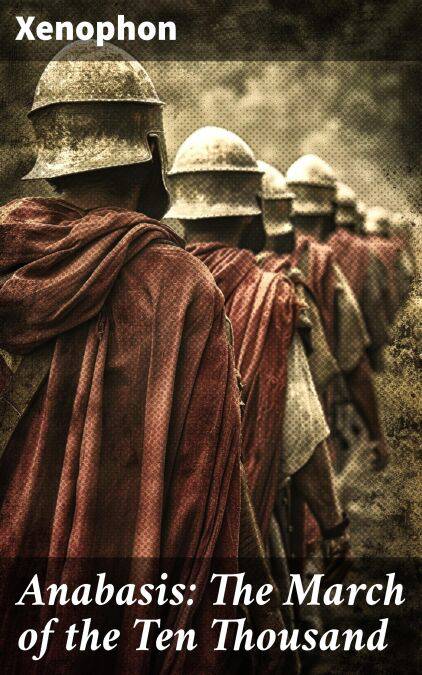
- Afhalen na 1 uur in een winkel met voorraad
- Gratis thuislevering in België vanaf € 30
- Ruim aanbod met 7 miljoen producten
- Afhalen na 1 uur in een winkel met voorraad
- Gratis thuislevering in België vanaf € 30
- Ruim aanbod met 7 miljoen producten
Zoeken
Anabasis: The March of the Ten Thousand E-BOOK
The Persian Expedition of Cyrus
Xenophon
E-book | Engels
€ 1,99
+ 1 punten
Omschrijving
Xenophon's "Anabasis: The March of the Ten Thousand" is a remarkable historical narrative that recounts the harrowing journey of Greek mercenaries as they navigate their way home after a disastrous campaign in Persia. Written in a compelling, straightforward style, the text serves not only as a military account but also as a profound exploration of leadership, camaraderie, and the human spirit under duress. The work is often lauded for its vivid descriptions and insightful observations of both the landscape and the character of the diverse peoples encountered along the way, placing it within the broader context of classical historiography that combines personal experience with historical fact. Xenophon, a contemporary of Socrates and a student of philosophy, draws on his deep understanding of leadership and ethics to convey the lessons learned from the brutal realities of warfare and survival. His experiences as a soldier and eventual leader of the retreating forces inform the narrative, showcasing his ability to reflect on his own trials while providing a wider commentary on human behavior in crisis. His philosophical background enriches the text, intertwining practical insights with reflections on virtue and wisdom. "Anabasis" is not merely a historical document; it is an essential read for anyone interested in the complexities of human endurance and the intricacies of leadership. It resonates with contemporary themes of loyalty, exile, and the quest for home, making it a timeless exploration of the trials that shape both individuals and nations. This work is a vital addition to the libraries of historians, philosophers, and general readers alike.
Specificaties
Betrokkenen
- Auteur(s):
- Vertaler(s):
- Uitgeverij:
Inhoud
- Aantal bladzijden:
- 284
- Taal:
- Engels
Eigenschappen
- Productcode (EAN):
- 8596547778813
- Verschijningsdatum:
- 14/12/2023
- Uitvoering:
- E-book
- Beveiligd met:
- Digital watermarking
- Formaat:
- ePub

Alleen bij Standaard Boekhandel
+ 1 punten op je klantenkaart van Standaard Boekhandel
Beoordelingen
We publiceren alleen reviews die voldoen aan de voorwaarden voor reviews. Bekijk onze voorwaarden voor reviews.











